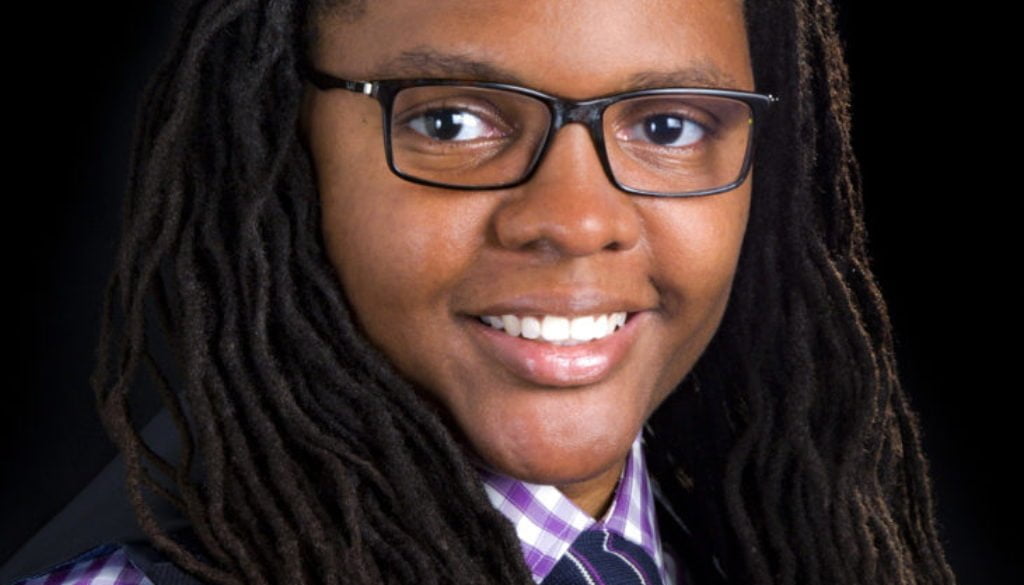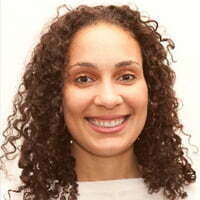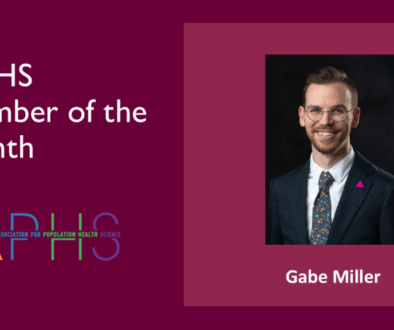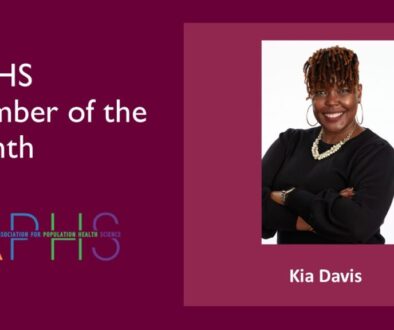Abigail A. Sewell is an Assistant Professor in the Department of Sociology at Emory. They joined IAPHS in 2017. Learn more about Abigail on their website and follow them on twitter: @aasewell
Tell us a little about yourself, where are you from, where did you go to graduate school, what makes you jump out of bed each morning?
I am a poet-activist turned researcher who found a home in the classroom. I was born in Atlanta, Georgia to Afro-Latino and Caribbean parents who met on the dance floors of Brooklyn, New York. I am quite migratory in spirit myself and find it hard to do many of the jobs that bring you stability in this economy. The one thing that will motivate me to sit down for a long period of time is writing. So, I was lucky to get into graduate school right out of undergraduate after majoring in Sociology with a Women’s Studies minor at the University of Florida. I knew, even then, that research was the career for me, but I was not convinced I’d have a future in the academy until I was far along into my graduate studies. I did end up going to graduate school for Sociology at Indiana University, Bloomington and received a Ph.D. Minor in Social Science Research Methods.
What makes me jump out of the bed in the morning to this day is either the sun shining bright upon me or, when the sun is hiding or away, the sudden urge to write (not kidding). In all seriousness, I am actually really not a morning person; I prefer to write in the dark with the images of the TV in the background. So, if I am literally jumping out of the bed in the morning, it is because I am almost going to be late to a class I have to teach or an appointment I have to attend.
How do you define yourself as a population health professional?
I am a population health researcher, primarily; and, secondarily, I train students – both graduate and undergraduate – in the principles of population health.
What disciplines do you engage with and are there disciplines that you would like to engage with?
I directly engage with Sociology, Public Health, Medicine, Demography, Social Work, Criminology, Urban Studies, and Public Policy. I would like to engage more with Political Science, Law and Society, and Legal Studies. It is becoming increasingly more important for me to tie my research to policy change and implementation. So, I see my future work drawing on conversations from those disciplines more and more.
Describe a current project/initiative that you are excited about.
The initiative I am most excited about is a large project on the health effects of the Great Recession. I examine the ways that the deregulatory forces that led to the Great Recession of 2007-2009 also are implicated in population health and health disparities, particularly the health of minoritized populations and the illness risks of living in ethnoracially marginalized communities. In so doing, I provide an innovative strategy for examining “recession” effects by following these deregulatory forces long before the Great Recession actually unfolds.
Name a population health professional who you admire and why?
Ooohh, do I have to just choose one? If I had to settle on ONLY one person, the population health professional I most admire would be Thomas LaVeist. His studies of the health benefits of black political empowerment were pivotal in my own thinking on the ways that institutional racism gets under the skin. So much of the theory around institutional racism’s health effects suggests detrimental risks of living with blacks. However, his formative research highlights a beneficial mechanism of black concentrated places – they are able to amass more political efficacy on behalf of the black voting population. Together, along with a host of studies suggest mixed associations of local measures of ethnoracial residential segregation, his research suggests that we parcel out the health effects of segregation more precisely to specify what is negative (and positive) about ethnoracial concentration at micro-, meso-, and macro-levels. I took up this task in my dissertation project as I attempted to study the health risks of contemporary forms of redlining – or, predatory measures of inclusion in the mortgage market identified by racial disparities in the regulation of loans. I find that the mortgage market produces both positive and negative effects on health, depending on how regulation is conceptualized: Lack of oversight due to the presence of jumbo mortgages is actually linked to better health for children in Chicago, whereas racial disparities in access to mortgages is linked to more health problems. This research, published in Sociology of Race and Ethnicity, is strongly influenced by LaVeist’s understanding of place stratification and the sociopolitical determinants of health at a time when few people were using those terms. I also cite him effortlessly in my studies of physician trust and health information sources, as he is a leading figure in that subfield of public health and medical research.
How did you hear about IAPHS?/Why did you decide to become a member of IAPHS?
I heard about IAPHS because many of the health researchers I know kept telling me about this new organization that was so cool and where everybody got “it”. I was invited to be a panelist at one of the annual IAPHS meetings to present my research on police surveillance and community health by IAPHS Member, Amanda Geller. So, I had an opportunity to interact with folks and see it for myself. I and decided to become a member because I had to in order to present on the panel, but I have stuck around because the ethos of the network vibes very well with my own approach to medical sociology, health disparities research, and public health science.
Have you attended an IAPHS meeting? If so, what do you like most about these meeting?
I have attended an IAPHS meeting. I like most the opportunity to network with a broad range of scholars across many different disciplines who are all drilling down on a similar topic. I actually met one of my co-authors at IAPHS for the first time, Justin M. Feldman. Ironically, we met via an email connection via a mutual mentor and began working on a paper together several months before we actually met in physical reality. Impromptu meetings like this are reasons why I would go back to IAPHS meetings – to convene with people who think like and complement me.
What would you tell someone who is considering joining IAPHS?
Join now! No, seriously, I would tell them that IAPHS offers an interdisciplinary space to talk about health in a way that you will just not find in your disciplinary homes. These homes sometimes force us into a jargon that is not widely accessible outside of the discipline. IAPHS and its people encourage readily accessible language, so that the message you are spreading reaches as many people as possible. Being able to translate your findings across many different disciplinary divides is not just a sign of good science but also a sign of a good scientist.
What would you like to see IAPHS do in the future?
I would like to see IAPHS foster more conversations with science writers – these are, journalists who cover science topics in the news. Part of being an interdisciplinary researcher is being able to give voice to something that is really complex. This is a gift that should be harvested for public good by closer ties to editors at the major newspapers, like The New York Times, The Washington Post, and The Los Angeles Times.
Favorite population health relevant book:
Favorite population health relevant academic/news/etc. article(s):
Favorite movie, band, non-fiction, book, etc.:
The Dragonriders of Pern series by Anne McCaffrey
The Gilda Stories by Jewelle Gomez
Beyoncé
Jay-Z
Meshell Ndegeocello
Tupac Shakur
Love and Basketball
Lilo and Stitch
Hitch






All comments will be reviewed and posted if substantive and of general interest to IAPHS readers.